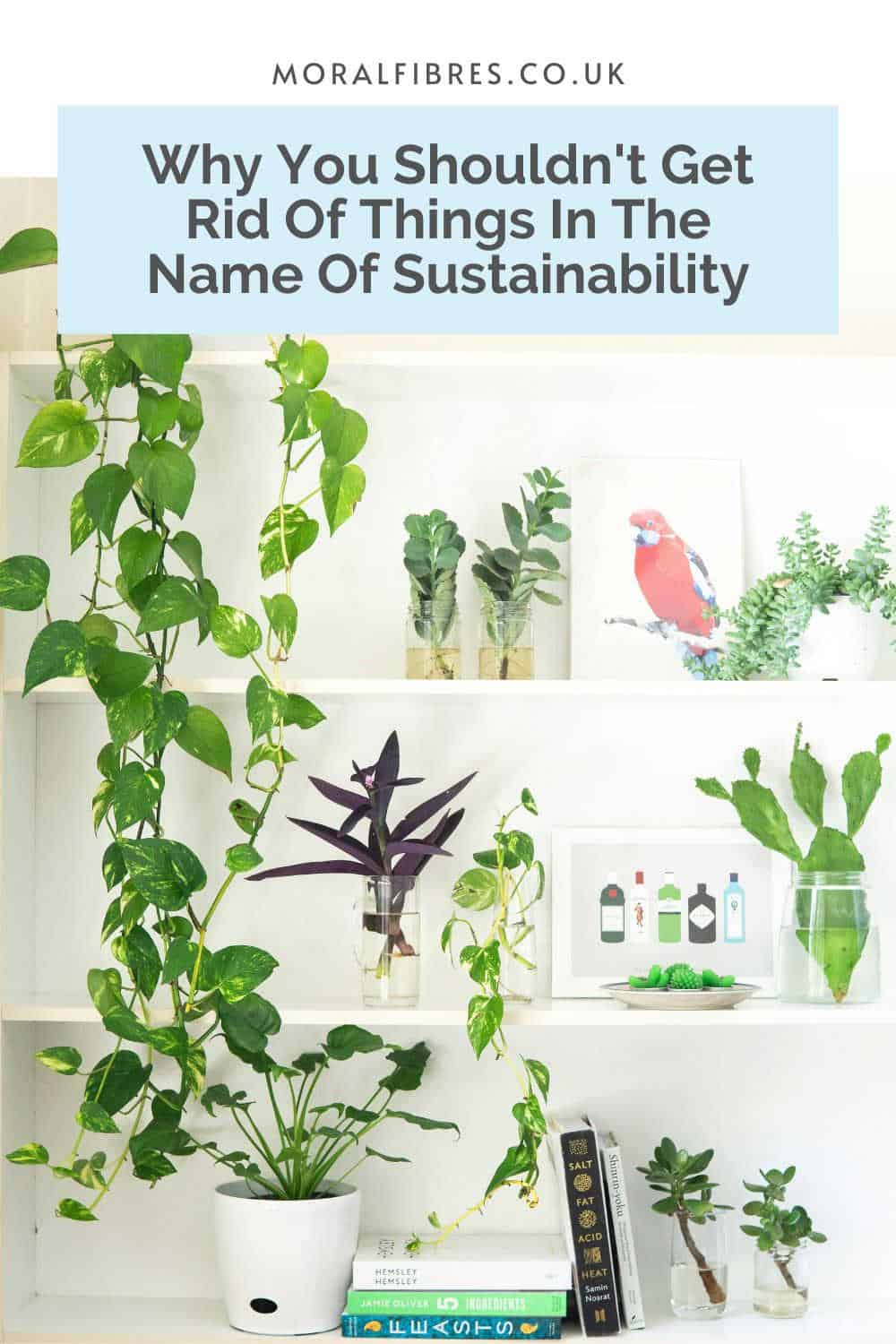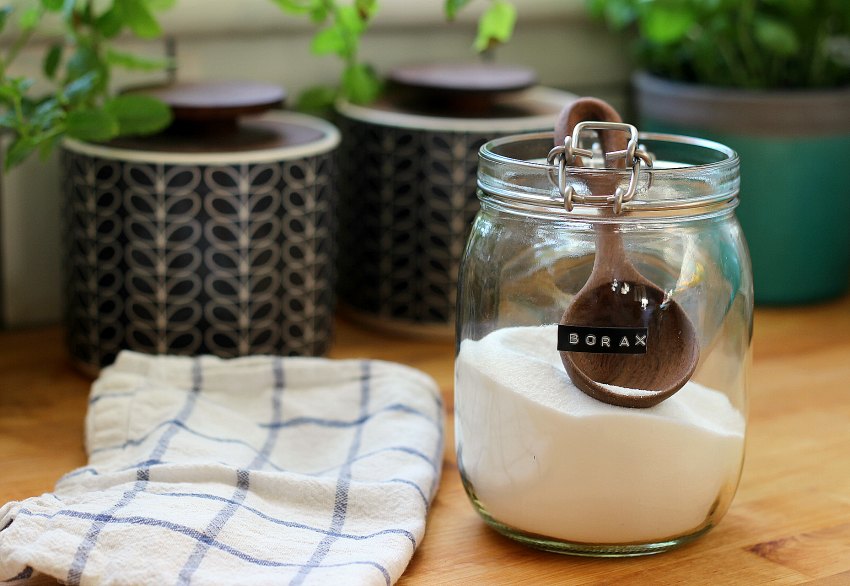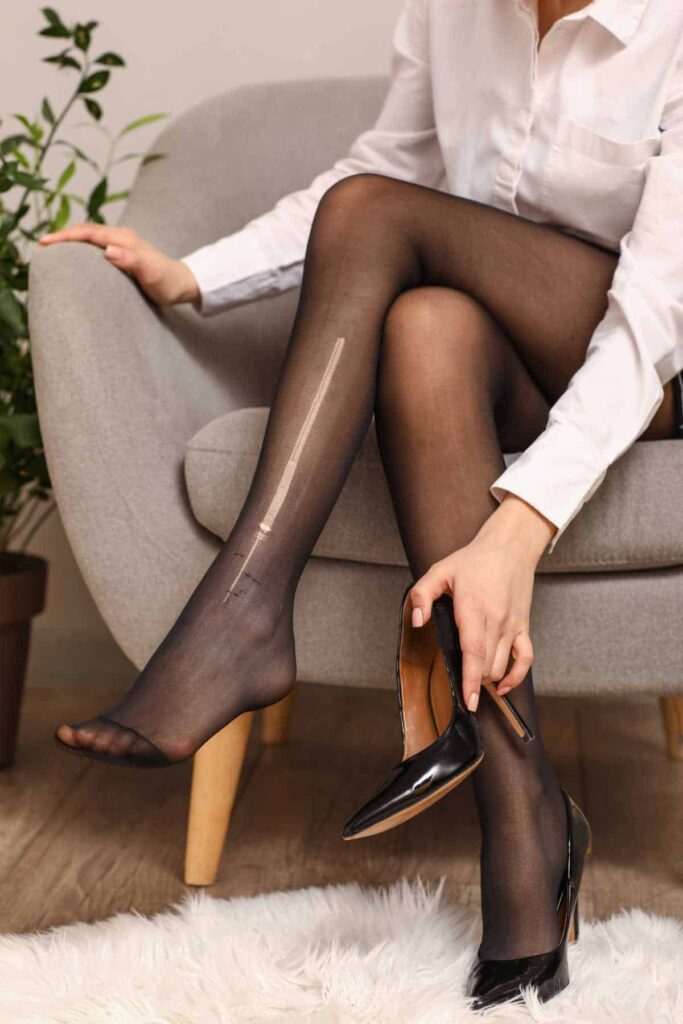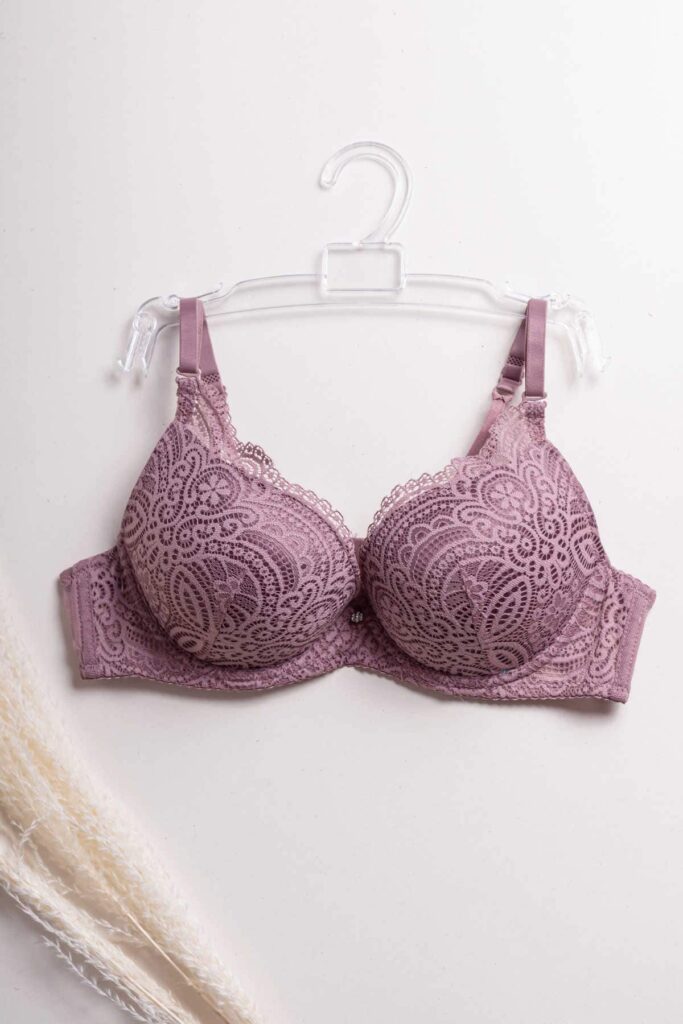Don’t Get Rid of Things In The Name of Sustainability
To support the running costs of Moral Fibres, this post may contain affiliate links. This means Moral Fibres may earn a small commission, at no extra cost to readers, on items purchased through these links.
In this sustainability sphere of the internet, something I feel that isn’t said often enough is, quite simply, don’t get rid of things in the name of sustainability.
When I write about ethical fashion I always say that the most ethical clothes are the ones you already own. The same runs true for all other aspects of your home. The most sustainable items are the ones you already have.
There seems to be some eco-pressure, perhaps stemming from social media, to have beautiful ‘sustainable’ homes. Homes where not a scrap of plastic exists. Some zero-waste accounts certainly make it feel that way, making people feel they need to get rid of useable plastic items and swap them for more sustainable versions.
My Un-Instagrammable Sustainability Superheroes

I freely admit that I share the bits of my house on the blog and Instagram that are the most “on brand” with Moral Fibres. The reality is that there are many things in my house which don’t fit in with the eco-friendly ‘aesthetic’. However, they are still sustainability superheroes and don’t get the attention they deserve.
To name but a few, here are some plastic things I won’t get rid of:
- In my kitchen drawer, you’ll find swathes of tomato-stained and oil-stained Tupperware tubs. I’m not going to throw them in the bin and replace them with “eco-friendly” metal or glass tubs. Instead, you can bet your life that I am using those tubs until they reach the end of their life. We are replacing them as they break, with glass ones. However, I fully expect to have some plastic Tupperware until I’m 85. I don’t care how nasty the old plastic ones look. The most eco-friendly thing to do is always use and reuse what you have.
- In a related category, we have heaps of plastic storage boxes. Some were bought more than a decade ago – maybe closer to two decades. I’m not prepared to throw them away simply because they are made of plastic. I’m using them and proud. But going forward, if we need to buy any more I will look for alternatives.
- Likewise, plastic utensils. We have some. I’m not replacing them until they break.
- Under my sink, you’ll find a collection of plastic carrier bags. These enter our home in one way or another. But again, these boys get used and used again, or I use them to donate good quality items to charity shops.
You Can’t Shop Your Way to Sustainability
I could go on and on about the parts of my house that visually aren’t a utopia of sustainability, but I don’t beat myself up about any of these things. It’s easy to be led to believe that living completely without a scrap of plastic is the pinnacle of sustainable living. But in truth, you can’t shop your way to sustainability.
Things like flying less, where possible, and eating a more plant-based diet, will have a more positive environmental impact than getting rid of perfectly good Tupperware for things made from more sustainable materials.
It’s also important to remember that plastic bags should be used four times for them to be more environmentally friendly than single-use plastic bags. Meanwhile, paper bags need to be reused 3 times, and cotton bags need to be reused a staggering 131 times before they are more environmentally friendly than a single-use carrier bag. There’s a lot of nuance within sustainability that means we can’t just say plastic is bad and other materials are better.
By all means, switch to more sustainably produced alternatives when items need replacing. In the meantime use your old plastic Tupperware with pride, tomato stains, and all. Reuse any plastic bags that come your way.
Don’t get rid of useful things just because they don’t look the part. Don’t feel any guilt – you’re doing a super job, even if it isn’t particularly photogenic.
Found this post useful? Please consider buying me a virtual coffee to help support the site’s running costs.




